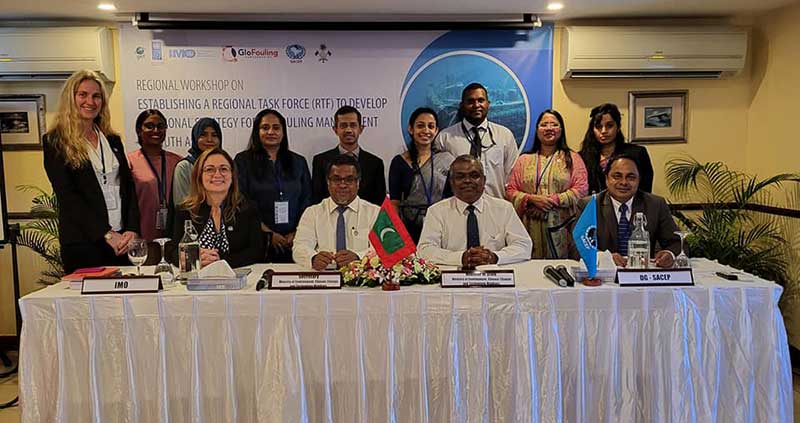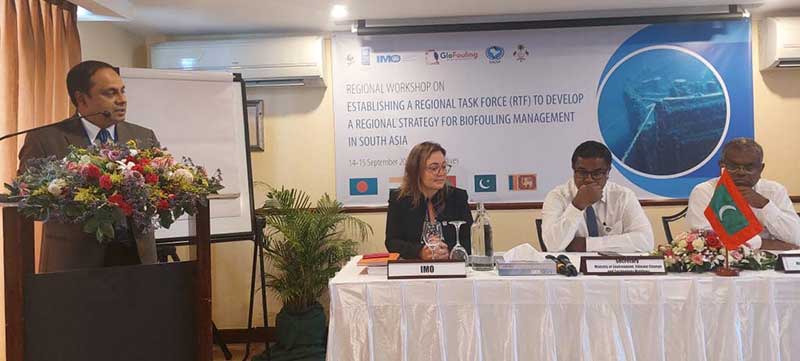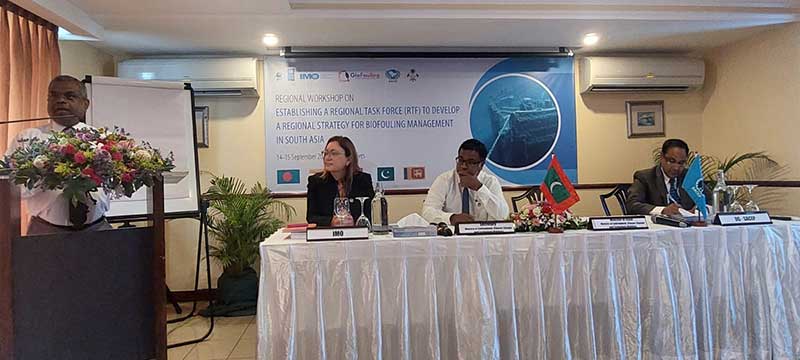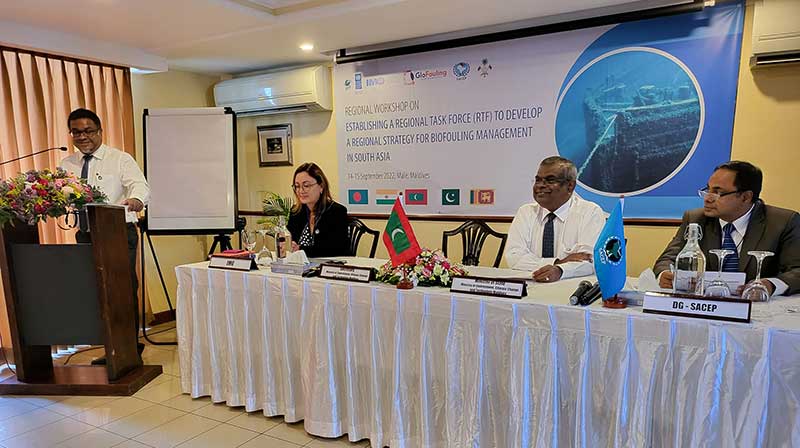September 15, 2022

Inauguration Ceremony, 14 September 2022 of First regional Task Force Meeting on Biofouling Management for South Asia 14 & 15 September 2022 Malé, Maldives
Speech by Chairperson Dr. Md. Masumur RahmanDirector GeneralSouth Asia Co-operative Environment Programme (SACEP)
Hon’ble Chief Guest Dr. Abdulla Naseer, Minister of State, Ministry of Environment, Climate Change and Technology, Republic of Maldives,
Mr. Ajwad Mustafa, Permanent Secretary, Ministry of Environment, Climate Change and Technology, Republic of Maldives,
Distinguished Delegates, Invitees, Ladies and Gentlemen,
Very good morning and welcome!
On behalf of the South Asia Co-operative Environment Programme, it is indeed my great pleasure to welcome you all to the First Regional Task Force Meeting on Biofouling Management for south Asia in collaboration with the International Maritime Organization GloFouling Partnerships.
Ladies and gentlemen,
As you know, biofouling is the gradual accumulation of water-borne organisms on the surfaces of submerged structures. And it presents an opportunity for invasive aquatic species to move outside what would be considered their natural range via mobile submerged structures like ships, boats, and other floating structures. In the marine environment, invasive alien species can alter adaptive habitats, competing with native organisms for limited resources and reducing biodiversity by causing extinction.
The South Asian Seas Region lies within one of the busiest shipping lanes globally, as it falls within the oil conveyor-belt from the Gulf to East Asia. That is why the risk of introduction of invasive species in the region is quite high. We are a region with many sensitive marine environments like the coral reefs, mangroves, seagrass beds and multiple deltas, where the impact of bio-invasion could have devastating effect on the balance of these ecosystems. Indeed, this risk is well recognized by policymakers in the region, as combating the risk of invasive alien species is listed as a separate goal in the Marine and Coastal Biodiversity Strategy for the South Asian Seas Region: Living in Harmony with our Oceans and Coasts. The Strategy was adopted in 2019.
That same year SACEP, in partnership with IMO, conducted a Regional Workshop on the Ballast Water Management Convention in Maldives. As you know, ballast water is also a pathway for invasive species. And much work has been done in this regard and significant progress has been made in managing this pathway. However, recent research suggests that biofouling may represent the most common mechanism for the introduction of non-indigenous species with a potential contribution as high as 69%.
Thus, to meet the global targets set in Aichi and those regionally agreed to control the threat of invasive species, managing the biofouling pathway is important. As a regional organization, SACEP collaborates with the GloFouling team at IMO to begin working on the development of a Regional Biofouling Strategy for the South Asia Seas. And today’s meeting to establish the Regional Task Force is the first step towards that goal.
The basic objectives of this workshop include; provide background on the GloFouling Partnerships project and on the steps taken in the region in relation to biofouling management, endorse the proposed draft TOR of the RTF and establish the RTF, and conduct the first RTF meeting, which will discuss and agree on a draft Regional Strategy Template on biofouling management. To that end, I encourage all government representatives and experts to fully engage in the discussions today and to speak freely on the issue with respect to national circumstances. SACEP as the regional coordinating organization looks forward to assisting our member states to address any barriers and to facilitate the implementation of our shared goals on biofouling management. I wish you all a very productive meeting both today and tomorrow.
Thank you very much.


